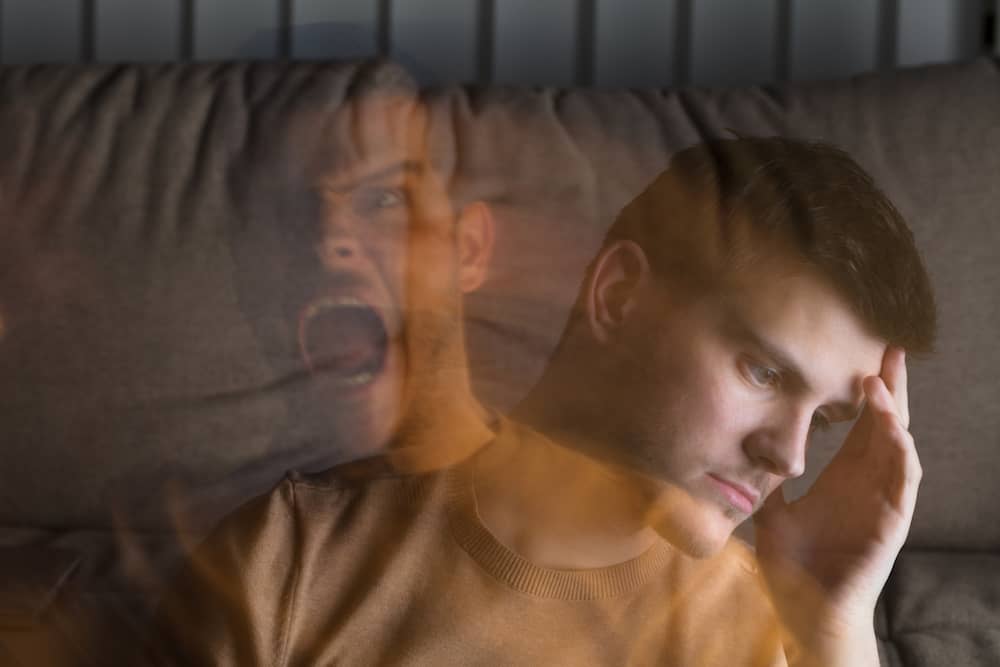What is Bipolar Disorder?
Bipolar disorder is a psychiatric disorder characterised by intense mood swings followed by periods of normalcy. Mood change fluctuates between constantly high or elevated mood with an increased activity called mania to a continually low mood, lethargy called depression.
Bipolar disorder is sometimes referred to as manic depressive disorder. People with bipolar illness during an episode may struggle to manage daily duties at school or work and maintain relationships. The right Bipolar Treatment In Delhi can help you live happily.
How do you know if you have Bipolar Disorder?
The bipolar disorder accounts for the majority of severe mental health disorders. Prevalence in India had been reported at around 5 in every 1000. The first episode usually presents between 20-30 years though most people reach for treatment only in their 40s. Early identification and treatment can help improve the overall quality of life
A person with bipolar illness may have an emotional high while suffering from mania. They can be ecstatic, impulsive, exuberant, and energetic. Some of the symptoms shown during the manic episodes are:
- Feeling excited and cheerful without any apparent reason
- Extreme irritability and anger
- Unable to sit still in one place, pacing up and down
- Speaking too fast and drifting from one topic to another
- Sleeping for only a couple of hours and yet feeling fresh
- Making unreasonable/extravagant plans
- Impulsivity
- Heightened sexual desire/behavior
- Sudden inclination towards drug use
You may encounter the following symptoms during a depressive episode:
- Feeling sad for no reason
- Getting out of bed seems difficult
- Low self-esteem
- Decreased concentration and focus
- Unable to stop crying
- Going for weeks without getting a desire to get intimate
- Indecisiveness
- You can’t fall asleep at night
- Decreased appetite
- Low sexual desire
- Negative thoughts about life ahead, death wishes, suicidality
Types of Bipolar Disorder
BIPOLAR I
At least one manic episode is required for bipolar I to be diagnosed. Before and after the manic period, you may have hypomanic or significant depressive episodes.
BIPOLAR II
People with bipolar type II experience more severe depressive episodes lasting for a longer period, and hypomanic symptoms last for a brief period.
What are the Causes of Bipolar Disorder?
Though no single cause for bipolar disorder can be pointed out, below is a list of possible causes of Bipolar Disorder:
- Genetics– You’re more likely to get bipolar disorder if your parent or sibling has it. Not all, but most people with a family history of bipolar disorder may suffer from bipolarity.
- Brain Function– Your brain anatomy may influence your risk of illness. Your risk may be increased if you have abnormalities in the structure or functioning of your brain.
- Environment– Growing up in a dysfunctional environment or traumatic events can trigger bipolar disorder.
- Medication – Certain medications can produce hypomania or mania as a side effect. This can happen while taking them or as a withdrawal symptom after you stop. This includes drugs for medical illnesses and psychiatric medications, such as antidepressants. Depression can also be a side effect of a variety of drugs.
- Alcohol & Drug Use – When you use them, you might experience symptoms comparable to mania, hypomania, or depression. It can be challenging to distinguish between the effects of alcohol and drugs and mental health issues.
Childhood Trauma – Some doctors feel that enduring a lot of emotional anguish as a child can lead to the development of bipolar illness. This could be because childhood trauma and distress can significantly impact your ability to manage your emotions.
Why Is Bipolar Treatment in Delhi Important?
Without proper treatment, bipolar disorder can severely impact an individual’s quality of life and ability to function. Treatment for bipolar disorder may involve a combination of medication, therapy, and lifestyle changes.
It is essential to seek Bipolar Treatment in Delhi to manage symptoms, prevent relapse, and improve overall functioning. Proper treatment can help individuals with bipolar disorder live healthy, fulfilling lives and achieve their goals.
What are the treatments for bipolar disorder?
One or more of the following groups may be used in the bipolar disorder treatment in Delhi
· Medications
· Electroconvulsive therapy (ECT)
· Lifestyle changes
Medications
Antipsychotics, mood stabilisers, and antidepressants can all help with mood swings and other symptoms. It is critical to understand the advantages and disadvantages of drugs. People may need to experiment with multiple medications before finding the best. They should never discontinue taking prescribed medications without consulting their bipolar disorder doctor first.
Psychotherapy
- Psychoeducation: Teaching the person and the family members about bipolar and, helping them identify an episode early, and providing support when episodes can help in reducing the dysfunction
- Interpersonal social rhythm therapy (IPSRT) focuses on maintaining a healthy routine and social rhythm to ensure a stable mood.
rTMS: it may be used to treat the depressive phase of bipolar disorder
Electroconvulsive Therapy
Electroconvulsive therapy (ECT) is a medical treatment most usually used in individuals who have not responded to traditional treatments for severe major depression or bipolar disorder.
While the patient is sedated, ECT involves a brief electrical brain stimulation. It is usually handled by a group of highly qualified medical professionals. Extensive research has revealed that ECT is quite successful in treating bipolar disorder.
Lifestyle Changes
Lifestyle changes can be an essential part of managing bipolar disorder. For example, individuals with bipolar disorder may benefit from maintaining a regular sleep schedule, avoiding caffeine and other stimulants, and engaging in regular exercise.
A healthy diet and relaxation techniques, such as yoga or meditation, may also benefit. In addition, avoiding alcohol and drugs, which can disrupt mood and interact with medications, can help manage symptoms of bipolar disorder.
It’s essential to get the proper treatment from the best Bipolar Disorder Clinic in Delhi NCR, as managing bipolar disorder can be challenging and may require ongoing attention and support.
Exercising, maintaining a routine, pursuing hobbies, and staying away from substance abuse help improve the symptoms of bipolar. Call +91 9811006930 and speak to any office staff to learn more or schedule an appointment.








